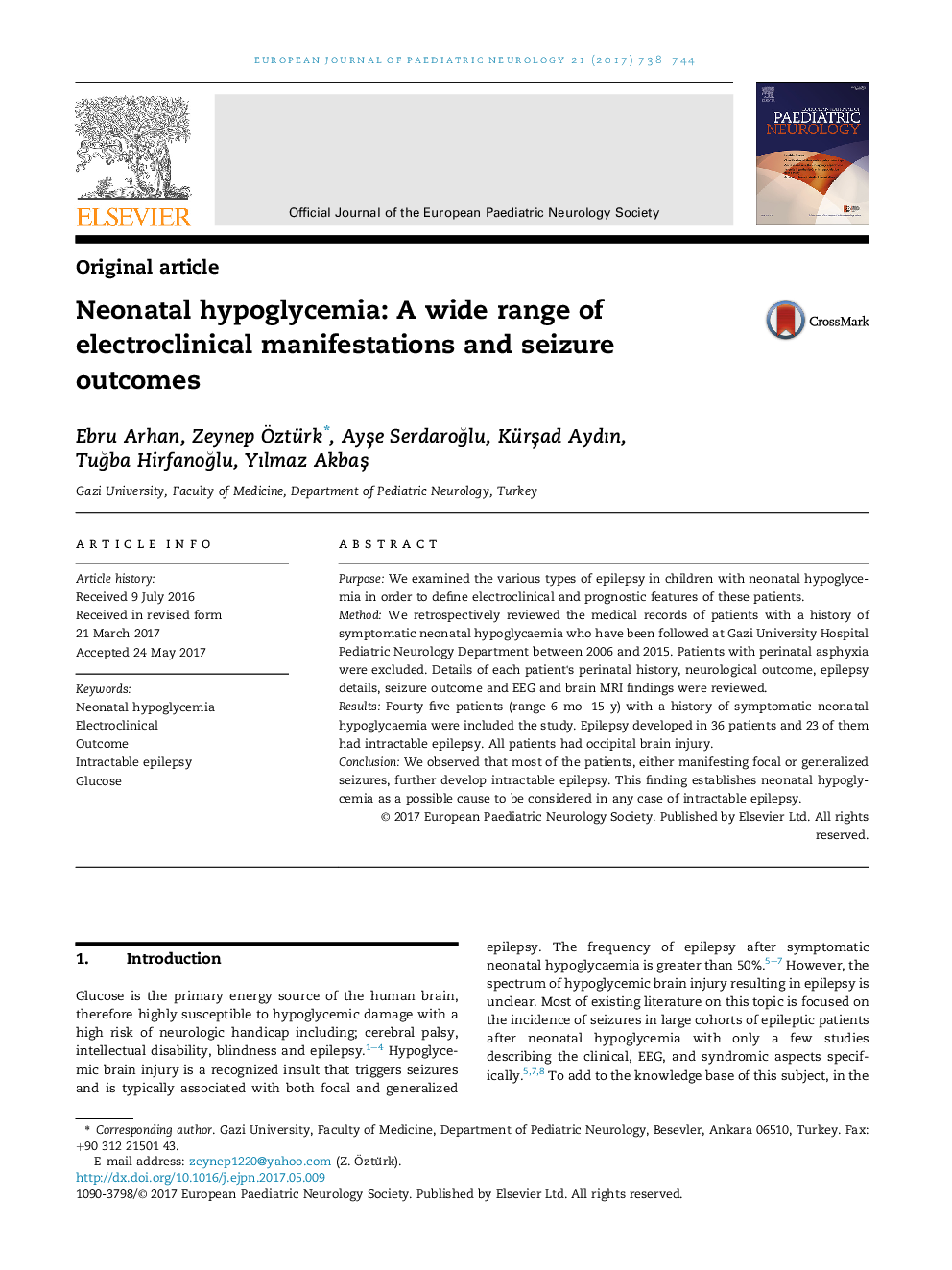| Article ID | Journal | Published Year | Pages | File Type |
|---|---|---|---|---|
| 5628859 | European Journal of Paediatric Neurology | 2017 | 7 Pages |
â¢Epilepsy in children with neonatal hypoglycemia tends to be intractable epilepsy than benign focal epilepsies.â¢Inadequate feeding in the first days of life is a potential cause of hypoglycemia.â¢A remarkable number of patients with occipital brain injury develop intractable epilepsy.â¢Electrophysiological features of epilepsy after neonatal hypoglycemia are variable.
PurposeWe examined the various types of epilepsy in children with neonatal hypoglycemia in order to define electroclinical and prognostic features of these patients.MethodWe retrospectively reviewed the medical records of patients with a history of symptomatic neonatal hypoglycaemia who have been followed at Gazi University Hospital Pediatric Neurology Department between 2006 and 2015. Patients with perinatal asphyxia were excluded. Details of each patient's perinatal history, neurological outcome, epilepsy details, seizure outcome and EEG and brain MRI findings were reviewed.ResultsFourty five patients (range 6Â mo-15Â y) with a history of symptomatic neonatal hypoglycaemia were included the study. Epilepsy developed in 36 patients and 23 of them had intractable epilepsy. All patients had occipital brain injury.ConclusionWe observed that most of the patients, either manifesting focal or generalized seizures, further develop intractable epilepsy. This finding establishes neonatal hypoglycemia as a possible cause to be considered in any case of intractable epilepsy.
